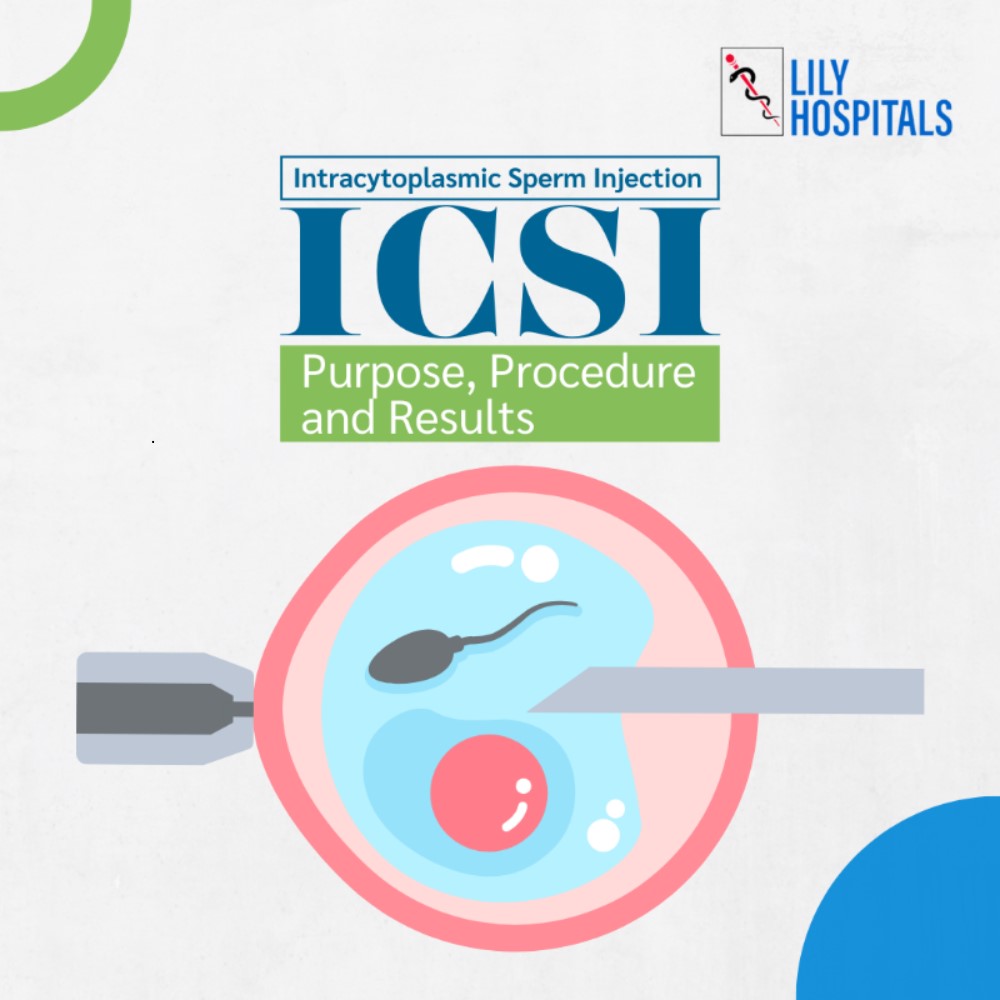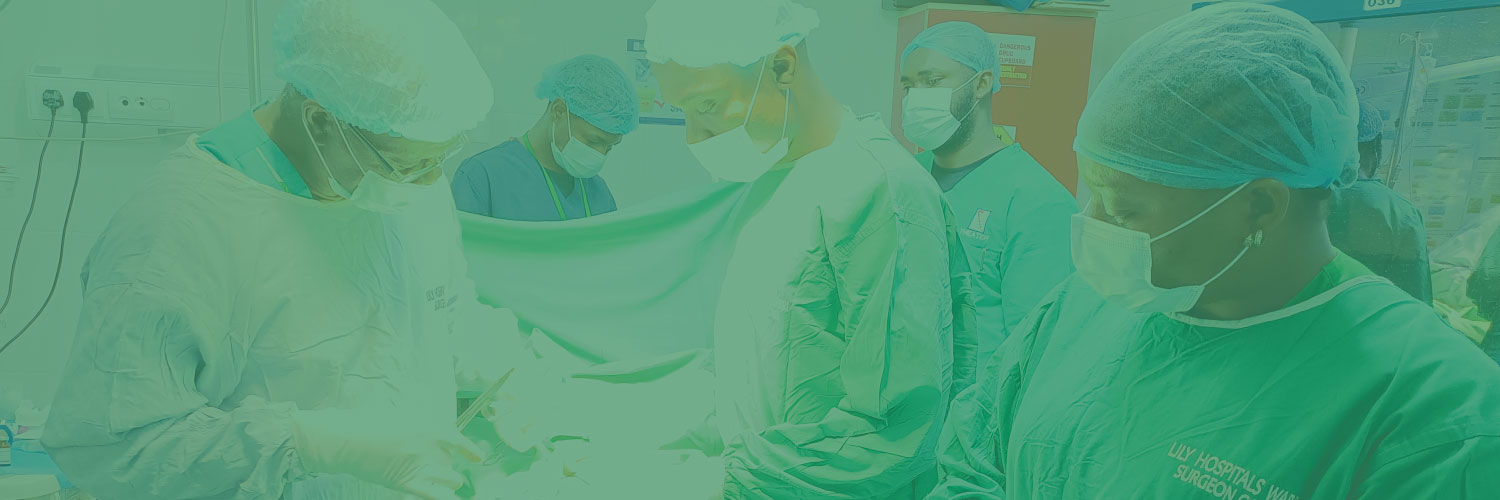
What is ICSI?
ICSI is an Assisted Reproductive Technique (ART) used to help couples suffering from infertility mostly due to male factor infertility achieve pregnancy. procedure that is commonly used to treat infertility conditions that are caused by severe male infertility factors. It involves injecting a single live sperm into an egg in a laboratory to generate an embryo
Male factor infertility makes up one-third of the causes of infertility and is diagnosed as the inability of a man to produce semen or semen with good quality sperm. The latter can be determined from a semen analysis carried out in the lab and the result usually shows one or a combination of the following parameters: low sperm count, poor sperm motility, poor sperm quality, agglutination, and aggregation.
Who are the Candidates of ICSI?
Intracytoplasmic Sperm Injection (ICSI) procedure is used for couples who fall into any of these categories.
- Couples have failed to achieve fertilization through a normal IVF treatment.
- Couples who have had more than 3 failed IVF cycle
- There is a blockage in the male reproductive tract due to varicocele or vasectomy.
- Men with low sperm count (below 15mil).
- Men with poor sperm quality
- A male undergoing a surgical sperm extraction procedure to retrieve sperm
However, men who do not have these issues may still be candidates for ICSI procedures if they are using frozen eggs for treatment, or requesting genetic testing on the pre-implanted embryos of any kind depending on the peculiarity of their condition.
What is the difference between ICSl & IVF?
ICSI is an ART just like IVF but requires a more technical process of treating the eggs with sperm. With traditional IVF, thousands of hopeful sperm are introduced to the egg in a laboratory dish, and nature takes its course. Whether one of the sperm penetrates the egg to fertilize it is left up to chance. If none of the sperm fertilizes the egg, fertilization doesn’t occur.
On the other hand, ICSI is more like a meticulously arranged date. A single sperm is carefully selected and directly injected into the egg. But even with this precise intervention, fertilization isn’t a certainty.
In both ICSI and traditional IVF, embryos generated are transferred back into the uterus of the woman to await implantation and pregnancy
What Happens Before ICSl?
What happens before ICSl is similar to what happens in the traditional IVF treatment process. Which are a series of preparatory steps that are critical for its success. Here’s an outline of what happens before ICSI:
Initial Consultation and Testing:
- Both partners undergo a comprehensive medical examination.
- For men, this includes semen analysis to assess sperm count, motility, morphology, and other important parameters.
- Women undergo hormonal evaluations and pelvic ultrasounds to assess their reproductive health.
Ovarian Stimulation:
- Women take fertility medications for 8 – 14 days to stimulate the ovaries to produce multiple eggs.
- The development of ovarian follicles is monitored through blood tests and ultrasounds.
Trigger Injection:
- When the eggs are mature, a trigger shot of hCG or another medication is given.
- This injection induces the final maturation of the eggs and prepares them for retrieval.
Egg Retrieval:
- Approximately 36 hours after the trigger shot, eggs are retrieved from the ovaries.
- The procedure is done under sedation, and transvaginal ultrasound technology is used to guide the insertion of a thin needle through the wall of your vagina into your ovaries.
Sperm Collection:
- Sperm is collected on the same day as egg retrieval or before it unless you’re using frozen sperm. For successful sperm collection, you’re expected to
- Abstains from sex and masturbation (no ejaculation) for two to three days before the sperm collection.
- Masturbates at home or in a private room at a fertility clinic, collecting the ejaculate into a lab-provided container. The specimen must be received by the laboratory within 60 minutes of ejaculation.
- If necessary, sperm retrieval surgeries like TESE or MESA may be performed for men who are unable to produce semen or have semen with no sperm present.
Egg and Sperm Preparation:
- Retrieved eggs are evaluated for maturity and quality.
- Sperm is prepared in the lab using any sperm preparatory method determined by the scientist
Each step leading up to ICSI is vital to maximize the chances of success, and the care and precision taken during these stages lay the groundwork for the intricate and hopeful journey of assisted reproduction.
Read Also: What Is IVF?
What happens during intracytoplasmic sperm injection?
Here’s a detailed step-by-step breakdown of what happens during ICSI:
Selection of Sperm:
A sample of sperm, either from a semen sample or extracted directly from the testicles, is prepared. The embryologist selects a single healthy and motile sperm for injection, often using a high-powered microscope to ensure the best choice.
Egg preparation:
The retrieved eggs are washed and stripped of their outer protective layer cells and examined for their level of maturation. Only matured eggs are injected, immature eggs will not fertilized even if they are injected.
If all eggs retrieved are immature ICSI cannot be performed and the procedure is halted.
Immobilization of the Sperm: Using the ICSI MACHINE
The selected sperm is gently immobilized by the embryologist. This is typically done by tapping the tail of the sperm with a specialized glass needle, which stops it from moving without damaging its structure.
Holding the Egg:
The egg is stabilized using a specialized holding pipette. It’s a delicate process as the egg needs to be held firmly enough to stay in place but gently enough to avoid any damage.
Injection of the Sperm:
A very fine glass needle, or micropipette, is used to inject the immobilized sperm directly into the cytoplasm of the egg. The needle pierces the outer layers of the egg – the zona pellucida and the egg membrane – to deposit the sperm.
Read Also: 6 Important Factors To Consider When Choosing A Fertility Clinic
Confirmation of Injection:
Once the sperm is injected, the needle is carefully withdrawn from the egg. The embryologist checks to ensure that the egg’s internal structure remains intact and that the sperm has been successfully deposited.
What happens After intracytoplasmic sperm injection?
After the Intracytoplasmic Sperm Injection (ICSI) procedure, the journey to potential pregnancy continues with several critical steps:
Fertilization Check:
- Post-injection, the egg is placed back into the incubator and monitored for signs of fertilization. This is usually evident by the appearance of two pronuclei after 16 to 24 hours, indicating fertilization
- About 16-24 hours post-ICSI, the eggs are examined to confirm fertilization. Successful fertilization is indicated by the presence of two pronuclei and two polar bodies within the egg.
- Embryologists document this stage, ensuring that normal fertilization has occurred.
Embryo Culture:
- Fertilized eggs, now called zygotes, are cultured in a controlled laboratory environment. Over the next few days, they’ll be closely monitored as they divide and grow into multi-cellular embryos.
- The culture medium is designed to provide the nutrients needed for healthy embryo development.
Embryo Development:
- Embryos are assessed for quality based on their rate of cell division, appearance, and evenness of cell growth. High-quality embryos have the best chance of implanting and developing into a pregnancy.
- Embryologists look for embryos to reach the blastocyst stage by day 5 or 6, which is often associated with higher implantation rates.
Embryo Transfer:
- One or more of the best-quality embryos are selected for transfer into the woman’s uterus. This is a crucial step and is usually performed 3-5 days after the egg retrieval.
- The transfer is done using a soft catheter and is typically a painless procedure that does not require anaesthesia.
Supplementary Hormone Support:
- After embryo transfer, women may be prescribed progesterone and sometimes estrogen to support the uterine lining and enhance implantation potential.
- Hormone supplements are usually continued until pregnancy testing and often through the first trimester of pregnancy.
Pregnancy Test:
- Approximately two weeks after the embryo transfer, a blood test is performed to measure levels of the hormone hCG (human chorionic gonadotropin), which indicates whether implantation and pregnancy have occurred.
- If hCG levels are positive, ultrasounds will be scheduled to confirm pregnancy.
Post-Transfer Care:
- Upon a positive pregnancy test, ongoing care and monitoring by fertility specialists and obstetricians are critical to ensure the health and development of the pregnancy.
- In the event of a negative pregnancy test, the medical team will counsel the couple on the next steps, which may include additional IVF cycles or exploring other fertility options.
- After ICSI, each step is carefully managed to provide the embryo with the best possible conditions for survival and growth, maximizing the chances of achieving a successful pregnancy.
ICSI at Lily Fertility Center
At Lily Fertility Center, we pride ourselves on being one of the best ICSI centres in Warri and Nigeria. Equipped with medical experts and world-class facilities to match, Lily Fertility Center has successfully performed ICSI procedures for hundreds of couples to date. Our precise diagnosis, meticulous procedure, and impressive success rates have contributed to making us one of the favourite destinations for ICSI procedures for foreign and local couples.
Read Also: 16 Essential IVF Success Tips: Maximizing Your IVF Treatment Chances
Conclusion
ICSI is one of the procedures that couples battling fertility problems can turn to. However, it requires the right expertise and equipment to be successfully performed. Keep in mind that there are certain boxes that you must tick before opting for an ICSI procedure which we discussed in this article.
Nevertheless, you must visit a doctor for an accurate diagnosis of your medical condition and the right procedure to undergo.




